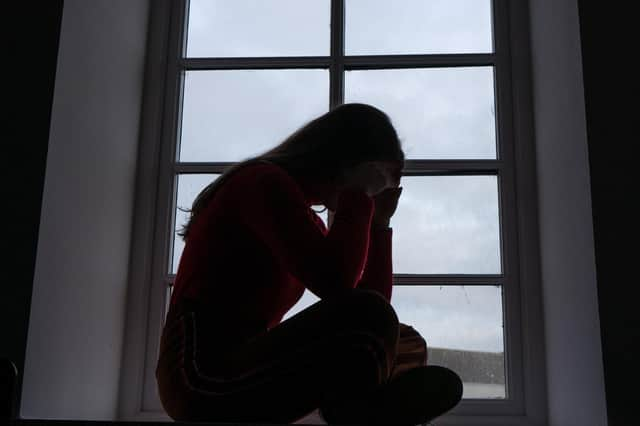Let’s be mindful of virus effect on mental health – Lynn Bell


As the pandemic spreads around the globe we can see our priorities shifting along with the realisation of what is important and valuable to society. The perception of front line workers and key sectors have begun to change and, suddenly, social reordering has become inevitable.
Despite isolation and confinement, we have never been more together, with volunteers and selfless acts dominating social media and the news. I have personally been amazed to witness the altruism, compassion, kindness and generosity of spirit and action that has united people across the planet.
Advertisement
Hide AdAdvertisement
Hide AdThere is no question that after this is over the world will look very different to how we knew it. As such, how we interact as social beings will have changed and the new efficiencies that technology has brought to us in a time of confinement will be adopted, as they have turned out to be great alternatives to running businesses. However, an extra level of awareness is required to face the long-term effects of the trauma that this fast change will cause and consequently access to health and social care support will be paramount.


With isolation we are already seeing an increase in alcohol abuse as a means to self-medicate to combat poor mental health, and suicide rates have begun to increase. Reports of domestic abuse are up and child protection concerns are down. With no school, doctors’ appointments or professional discussions, levels of depression and anxiety are spiking. However, because of confinement, no one is there to report it or witness it. If we do not address the silent suffering that coronavirus has brought upon us, this crisis will leave society with long-lasting trauma.
But this is not new. Mental health issues have been increasing dramatically in the last decade and they have previously been described as a modern-day pandemic and one of the greatest public health challenges of this current age. It has been estimated that approximately one in four people in the UK experience a mental health problem each year. Concerns towards mental health, however, seemed to have blown away with the arrival of the coronavirus storm.
Every year, close to 800,000 people in the world take their own life and suicide is the leading cause of death among young people aged 20-34 in the UK. To put things in terms that resonate with us these days, every year suicide causes more than double the deaths that Mers, Sars, Ebola, 2009 flu and, so far Covid-19, combined have caused.
So, whilst we all agree that the Government should be commended for the supports put in place to help businesses and individuals through the coronavirus crisis, it is disconcerting that a similar response is not expected when it comes to the silent epidemic that mental health is.
This is particularly aggravating for vulnerable families and children, people with an additional support need (ASN), health concerns, disabilities or for our elderly generation. With no doctor or hospital appointments, and non-critical patients being moved to home care, people’s problems will worsen for longer and that will cause a long term ripple effect on a burdened social care support system that battles to deliver high-quality services.
Therefore, the Government should be extra careful at ensuring that this diversion of budget, which will undoubtedly have a huge impact on public services going forward, does not affect the already thin budget for mental health and ASN support. Otherwise, we will be curing one pandemic but worsening another.
Remember, once this critical time is over, being mindful of the hidden impact of coronavirus on those most vulnerable, and ensuring that the interruption on their support system and services is as minimal as possible, will be paramount. The community spirit that has sparked and that we have all seen go viral on social media amid the outbreak, needs to be fostered and continued to ensure that the services to support those most in need are in place and that they are able to access them rather than slipping through the net.
Lynn Bell, CEO of LOVE Learning, member of the Scottish Children’s Services Coalition.